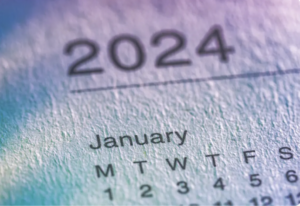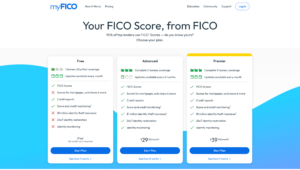Small business owners, especially sole proprietors, often mix business credit accounts with personal credit. This can be dangerous as it leaves your personal credit at risk should default occur on the business credit.
The distinction between business credit and personal credit becomes blurred if you give a personal guarantee when you apply for business credit. The personal guarantee acts as a co-signer which makes you personally responsible for the debt if payment is not made.
Even if the business credit never reported to personal credit reports, should default occur, it will undoubtedly find its way to your personal credit reports. Most business credit card issuers reserve the right to report late payments to personal credit if the business defaults on the debt. This puts not only the business credit in jeopardy but also the personal credit.
5 Reasons To Separate Personal Credit From Business Credit
Keeping your personal and business finances separate can help you protect your personal finances, establish credibility, build strong business credit, simplify tax preparation, and provide personal liability protection.
Protecting Your Personal Finances. By separating your personal credit from your business credit, you can protect your personal finances from any negative impacts that may arise from your business’s financial troubles. If your business defaults on a loan or faces financial difficulties, it won’t directly affect your personal credit score.
Building Your Business Credit. Separating your personal and business finances allows you to build your business credit history, which can help your business qualify for microloans, credit cards, and other financing options like merchant cash advances in the future. Building strong business credit can also help you negotiate better terms and interest rates on loans and credit.
Avoid credit card being maxed out. When entrepreneurs use their personal credit cards for business purposes, expenses can add up quickly. Maxing out personal credit cards puts you in risk of decreasing personal credit scores due to credit utilization. Credit utilization is the percentage of your available credit that you are currently using. It is a key factor (30%) that credit bureaus use to calculate your credit score.
Establishing Credibility. By having a separate business credit history, you can establish credibility and professionalism in the eyes of lenders, suppliers, and potential business partners. This can help you build trust and secure better financing options for your business.
Simplifying Tax Preparation. Separating your personal and business finances can make tax preparation much easier. Utilizing separate credit accounts along with a business checking account, makes it a lot easier to keep track of deductible items. You’ll be able to clearly track and document your business expenses and income, making it easier to file your taxes accurately and take advantage of every deduction possible.
Personal Liability Protection. Separating your personal credit from your business credit can provide you with personal liability protection. If your business faces legal action, such as a lawsuit, your personal assets will be protected from any judgments or settlements.
Having a bad business credit rating would be detrimental to your business reputation and make it difficult to obtain future credit and financing. But having personal credit in danger means you could lose personal assets, including your home and automobile. Your total financial outlook would be in jeopardy.
It would be a long and difficult road to recovery having both business and personal credit ruined. If the business was structured as a corporation it would be easier to get business credit without a personal guarantee and since a corporation is a distinct legal entity, the business owner’s personal assets are protected from liability the business may incur.
Can you build business credit without using personal credit?
It’s possible to build business credit without relying on personal credit. Utilizing vendor accounts, such as net-30 accounts, can be an effective way to build business credit as they don’t impact personal credit reports. However, some lenders may still check personal credit during the early stages of a business or until it has generated significant revenue.
Are business credit bureaus the same as personal credit bureaus?
No. Business credit reports and personal credit reports are kept completely separate.
Business owners are likely familiar with personal credit reports used to create FICO scores. These reports are compiled by the major credit reporting agencies: Equifax, Experian, and Transunion.
However, businesses may also have credit reports and credit scores. Major commercial credit reporting agencies such as Dun & Bradstreet, Equifax Business, and Experian Business compile business credit reports. But, since many small businesses don’t have established business credit histories, some companies offering small business loans and credit cards may also check consumer credit reports or scores.
The bottom line is that mixing personal and business finances makes it difficult to keep them separate. If you use personal credit cards or loans to fund your business, and you are unable to make the payments, this could negatively impact your personal credit score.
More Small Business Resources
- Check out how to establish business credit without a personal guarantee.
- Learn the different ways to structure your small business.
- Discover the best online business checking accounts that can be opened from the comfort of your home or office.
- Find out why microloans are a good option for small business owners with bad credit.
- Get quick funding with a merchant cash advance.
- Find business checking accounts that don’t use ChexSystems for entrepreneurs with ChexSystems records.






















